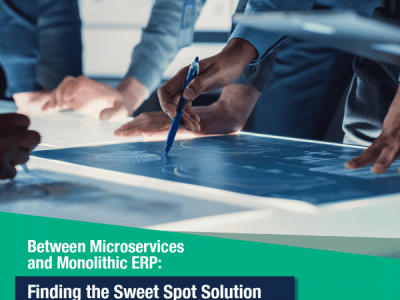
If the future of ERP lies with greater personalisation and enhanced user experience – as with so many other services – then how should vendors prepare?
At stake is an outstanding opportunity, given that a report by Forrester values the personalised ERP solution market at $15 billion as of 2020.
The battle ahead is not over software, however. The code itself is no longer the sole property of a global vendor who dictates the terms and schedule of software release. Software is a shared commodity, freely accessible to a wider community.
Consequently, there is little value to be added by calling in a core development team to rebuild an ERP solution from scratch. Not only is the upfront investment considerable, but the costs will continue to grow exponentially as the ERP solution scales, with each upgrade and reconfiguration requiring the support of a dedicated team.
While a software consultant or development team can deliver technical expertise, the return on investment is limited. An ERP solution that allows the business to run more efficiently will save revenue internally, but it will not necessarily generate additional revenue streams externally. That comes from carving out a differentiated position in the market.
Vertical-specific expertise
While the value of code is limited, the value of vertical or market expertise can be priceless. ERP vendors with considerable knowledge within a specific vertical can quickly get to the heart of their customer’s business needs – and translate them into integrated solutions that are in harmony with the processes that deliver business value and intelligence. No redundancy, no duplication, no steep learning curve.
The goal would be to onboard not simply a software builder, but an architect who can facilitate the builders of the future, whether these are developers, consultants or stakeholders. That level of expertise will typically be found with vertical-specific ERP software development houses whose own trajectory has followed the growth of a specific niche.
Manufacturing, distribution and retail would be the obvious candidates when it comes to clearly defined verticals, but ERP systems are just as at home (and can deliver just as significant an impact) in asset management, construction, education and more.
The Business Functions Where ERP will deliver the most value in the future:
- Customer Management
- Finance
- Inventory Management
- Human Resources
- Manufacturing Modules
- Supply Chain
The Industry Verticals of the Future
- Manufacturing
- BFSI
- Healthcare
- Retail & Distribution
- Government & Utilities
- IT & Telecom
- Construction
- Aerospace and Defence
For businesses looking to differentiate themselves within a crowded vertical, local ERP solutions offer clear benefits over global ERP platforms. The established off-the-shelf solutions are not designed to bend to the bespoke requirements of small-to-medium enterprises. Their purpose is to streamline and consolidate operations across large organisations.
And it is to those organisations that the big vendors answer. For small to medium-sized businesses, on the other hand, which may account for a nominal portion of the vendor revenue, the likelihood of priority support or forward-thinking personalisation features is low.
Similarly, there is the question of code ownership. With a global ERP solution, the trade-off is between software that is likely to be fully tested and functional within its borders but prone to conflict and incompatibility where it meets third-party software. Admittedly, this tension between proprietary and third-party software is easing as even the tech giants recognise the demand for platforms that can accommodate edge devices, mobile applications and other configurations that were previously locked out.
However, there is a clear advantage in choosing a software solution that is built to the needs of an industry from the beginning. Not only is the ERP platform better equipped to scale as the business grows, but it is more flexible when it comes to adapting to changes in customer behaviour or expectation.
According to Gartner, software integration accounts for 40% of spend on digital business solutions in 2020. The integration of IoT, including cloud computing and mobile devices, presents a particular challenge.




